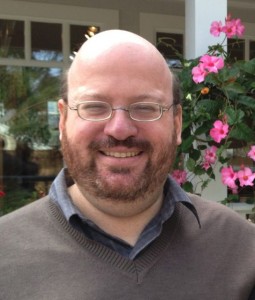The New Classical
by Christian Carey
I’m pleased to be increasing my involvement with Musical America as the official correspondent for “new music,” about which I’ll be blogging regularly in The New Classical.
About me: I am a composer, performer, writer, and musicologist specializing in music theory, Post-WWII, and American music. My compositions have been performed by the Cassatt String Quartet, New York New Music Ensemble, Locrian Chamber Players, League of Composers, and many others. My primary job is in academia, where I am an Assistant Professor of Music at Westminster Choir College in Princeton, New Jersey. Since 2001, I have been writing articles and reviews about classical, jazz, popular, and experimental music for a variety of publications, including Signal to Noise Magazine, Perspectives of New Music, Tempo, Intégral, Musicworks, Sequenza 21, NewMusicBox, Copper Press Magazine, Splendid Magazine, PopMatters, All About Jazz, Muso, and TimeOutNY. I have also contributed and edited articles for the latest edition of the Grove Dictionary of American Music and Musicians. (To learn more, visit my website: www.christianbcarey.com.)
There’s no way around it: describing something as “classical music,” particularly if it is music written by living composers, has become increasingly cumbersome. It is unlikely that we can forgo the term “classical” altogether: too many radio stations, stores (digital and brick-and-mortar), and arts organizations perpetuate the use of it. When connecting music that is being created today to the classical tradition, the terms “contemporary classical,” “new classical,” and “new music” are often used interchangeably. All three are somewhat problematic.
Both contemporary and new classical connect something happening today with something that all too many people — call them “civilians” — think was made exclusively by Austrian men in powdered wigs. Calling today’s classical music “new music” seems to ignore all of the new music in other genres that is currently being created. What happens to new music by composers once they have passed away: should we call Berio’s music “Near-contemporary Classical?” Partly in response to this conundrum, I am big on breaking down genre barriers (my other blog is titled File Under?). That said, here I will focus on what is going on in “New Classical” music, however loosely defined.
There are a lot of reasons to be excited about New Classical music today. The entrepreneurial and adventurous spirit of a number of ensembles, record labels, and concert series have provided us with a plethora of options to hear. Despite gloom and doom predictions about music’s future, there seem to be more and more composers interested in writing classical music and talented performers willing to play it.
As one can readily see from the biographical snapshot above, my pursuits are eclectic and tastes are catholic. And I am not alone. Many of the practitioners of New Classical music are interested in many different styles and are omnivorous in their listening habits. This informs their work with contemporary flavors that couldn’t be further removed from “music by dead white guys.” That said, among these adventurous souls there is often a profound respect for and connection to the classical canon. Unlike the style wars of the Twentieth century, where composers had to choose sides based on the kind of music they wrote and the composers that camp permitted into their sphere of influence, musicians today ask, “Why does it have to be either/or?”
I frequently tell my composition students that their musical path can now be more varied than ever, that style has become just one aspect of making a new piece. Much like trying various orchestrations, composers can now experiment with composing in different styles from piece to piece while trying find a compositional identity that will serve them as a through-line. In a culture of streaming, shuffling, mixing, and remixing, composers are able to enjoy being part of a variegated, in some ways fragmented, music scene.
In the coming weeks, I will attempt to provide more context for New Classical’s scene. I hope to encourage you to explore this music–not out of a sense of duty, but with a sense of expectation and adventure.
